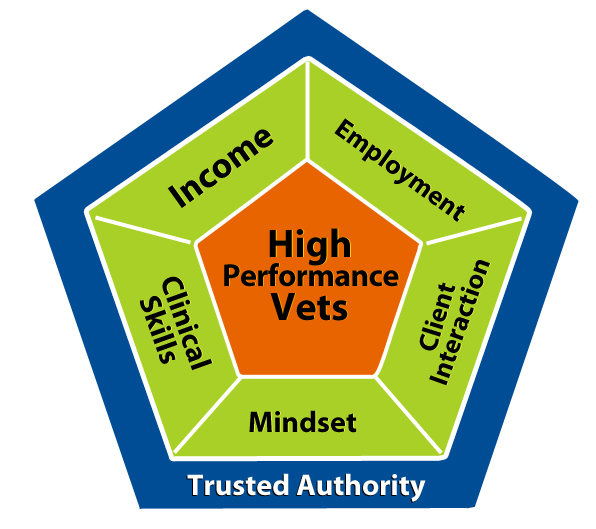There are so many things to consider for your first job. A lot of new graduates look at the location, type of practice, the colleagues, the salary & the working conditions.
What you also need to consider is where you will be working and what support will you have.
The ability to gain experience from the cases you see and from experienced veterinarians as well as the support given is critical to building your confidence and competence.
I would be asking the following questions when considering employment options:
1. How many practices do you have?
Does the practice have another clinic or a branch practice which normally has skeleton staff. To be honest, you should already have done your research and be aware of the number of practices and where they are located. What you normally can’t find on the internet is staffing levels, the rosters and where most of the work is done.
2. How many staff are employed at each practice?
You are enquiring about how the Vet:Staff ratio at each practice.
3. How many support staff will I have to assist me with procedures and surgeries and what is their experience?
My first job had 1 experienced nurse who was so busy at reception I was often by myself in surgery with minimal assistance. I learned to be very self sufficient and I didn’t know any different until my next practice where I saw how a practice should have been staffed.
You need to be aware of the experience level of the nurses. A high number of inexperienced nurses would lead me to question what training is occuring in the clinic or do they have a high turnover.
A highly trained & experienced nurse is worth their weight in gold and can give you tremendous assistance. I thoroughly enjoyed working in the UK with their highly trained nurses and the number of nurses employed. I was in bliss!
In Australia I have worked with ratios of Vet:Nurse of 1:1 or 1:3 but generally 1:2. A lot of practices in Australia don’t have receptionists so nurses will work at the reception desk as well.
4. Which practice will I work at?
You need to know where you will be working predominantly and how often. Some clinics have rotating rosters.
5. Will I always be working with another veterinarian?
You need to be aware of how often you will be left by yourself at the clinic and at which one. In my opinion, you shouldn’t be sole charge at all initially as in practice you can go from having a very quiet afternoon to total chaos in the space of half an hour.
6. How much of the time will I be sole charge?
This is the same as question 5 but it never hurts to ask the same question in a different way to find out the true answer. Some owners will believe that you won’t be working sole charge but are happy to leave you do the afternoon consults by yourself when they leave early.
7. Will I be working at the branch practice? If yes, how often and will I have support?
You need to know this. If you expect to take your first job working at large practice hoping to be involved in all the cases and surgeries and then find out you will be mainly working at the branch practice, it will lead to dissatisfaction & frustration.
You need to be aware of the support you will be given as well. Which nurses will be with you and who can you call for emergencies? If you are in the middle of a surgery that is haemorrhaging, who can rush to help you?
Why do I believe asking these questions are important? I never asked them. I didn’t even know to ask them and I probably would’ve been too scared to ask them anyway. I wanted a job and took one that looked great. It was a good job where I learned an incredible amount but it had it’s flaws.
In all honestly, I don’t think the perfect veterinary clinic exists! You need to ask the questions so you are aware of the situation when you take the job.
The amount of emails I receive from new veterinary graduates who have been placed SOLE CHARGE in the branch practice with NO support astounds me.
Why would a practice do that? As we all know, the interaction a client has with a practice will determine their perception of the practice. They will then generalise this belief to include the whole practice. So if they have a less than ideal result from a consultation with a new graduate, they are more likely to be dissatisfied and move to another practice. Not ideal for reputation management.
New graduates need support and have so much to learn about interacting with clients, how to communicate and how to recognise simple and easy to treat conditions from challenging cases.
In my opinion, it is totally irresponsible from a business point of view with regard to reputation management to put a new graduate into a branch practice with no support.
It is totally irresponsible for a business to put a new graduate sole charge into a branch practice as it can have a detrimental effect on the confidence and competence of the vet. How will they learn? I think the ‘sink or swim’ style of learning has proved to be very inefficient and outdated.
It is totally irresponsible to expose clients to veterinarians who have no experience and don’t have access to the knowledge base of another veterinarian working closely with them.
If you are a new graduate with this situation, you must ask for advice and for help. You are not doing yourself any favours by going it alone. If you believe asking for help means you are not good enough or a sign of weakness that is totally incorrect! With 13+ years experience, I still ask for advice and a colleagues thoughts on a case.
Your thoughts or advice?
Natasha
P.S. New graduates – remember to sign up to receive the video series about succeeding in your career. It is located on the home page at the right or the very bottom of this page.







